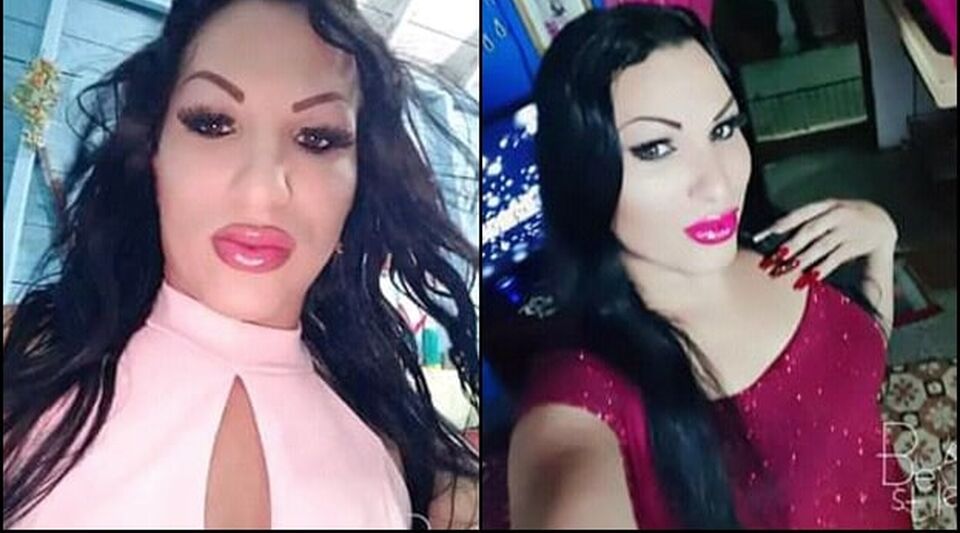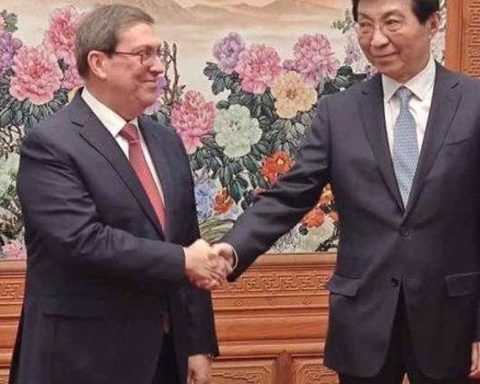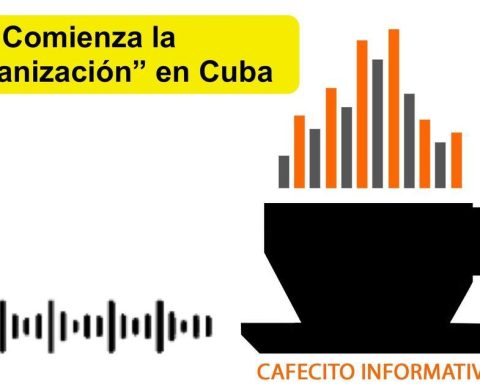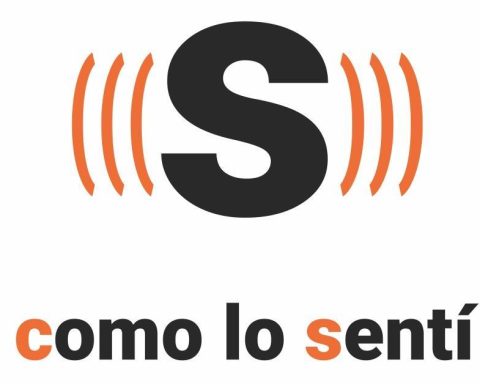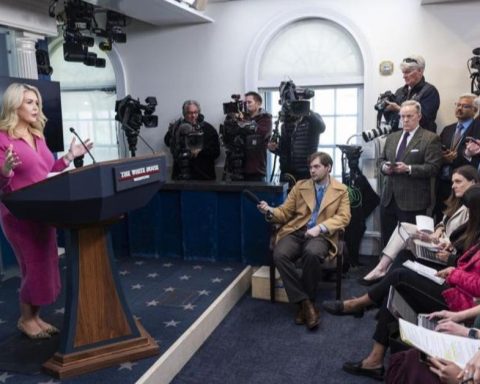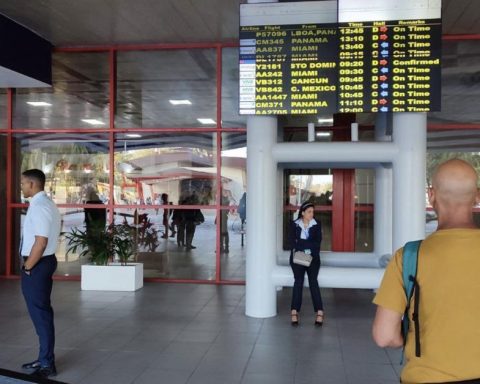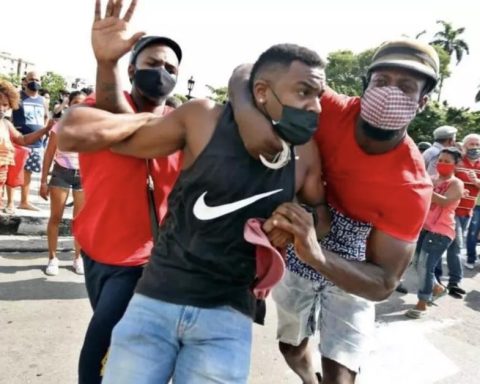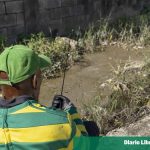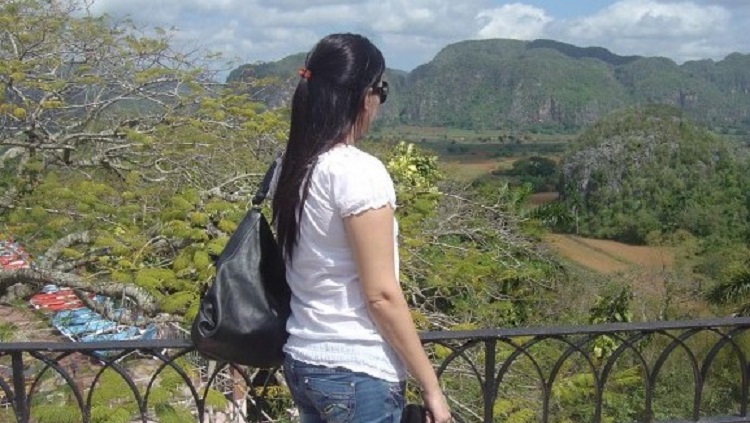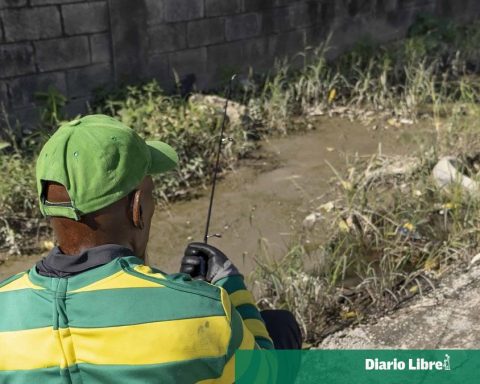Brenda Díaz, the trans protester sentenced to 14 years in prison for demonstrating on 11J in Güira de Melena (Artemisa), has seen the hope of a reduction in her sentence crumble and “she is very sad”, she tells 14ymedio his mother, Ana Maria Garcia. The Military Chamber of the Supreme Court dismissed his appeal, although he accepted the review of eight of the appeals and three more ex officio, which did see his sentences reduced.
The trial was held on June 18 to review the harsh sentences against 21 of the 32 protesters included in the case, and convicted mostly for crimes of sabotage and public disorder in the first instance to sentences ranging between 15 and 8 years of prison.
“So long that I waited for this day to find out if they lowered his sentence and nothing,” Brenda’s mother wrote on her Facebook profile last night, after receiving the notification, which has taken two long months. “I am with such great sadness in my soul that I no longer know whether to scream, cry, fall apart … Why so much injustice? Why, if she is not a murderer? Why, if she only did what the whole town “Ask for freedom, did they go after her? All of them had their sentence reduced to less than two or three, and among them is you, my girl. A lot of pain. But I will not leave you. I will continue fighting for your freedom even if it costs me mine or my life “, he added.
In reality, most of those convicted did not benefit from significant sentence reductions. The eleven lucky ones are Yasdany Benítez Quesada and Yandi Hernández Montes de Oca, who go from a joint sentence of 14 to 10 and 8 years in prison respectively, Yanley López Basulto, from 12 to 8 years, Yasiel de Jesús Chinea Solano and Ismael Rodríguez González they go down from 11 to 8 and 7 each; Daisel González Álvarez and Yunior Pérez López, from 10 to 7 years old.
“I am with such great sadness in my soul that I no longer know whether to scream, cry, fall apart. Why so much injustice?”
Finally, Yismel Alfonso Oliva, sentenced to 9 years, and Dariel Rosa Pérez, Lázaro Jason Cecé Gálvez and Gilberto Castillo Castillo, all of them sentenced to eight, spend six years in prison.
Those sanctioned with longer sentences, such as Jorge Bello Domínguez, Mijail Sánchez de la Nuez and Orlando Valle Jorge, all of them sentenced to 15 years, have not seen their sentence modified. Freddy Luis Díaz García (Brenda Díaz’s birth name) and Lizandra Góngora Espinosa were sentenced to 14 years; Yander Rodríguez Iglesias, at 12; Yasiel Hernández Márquez and Juan Pablo Martínez Monterrey at 11; Lázaro Antonio Rodríguez Jerez and Marlon Noval Alfonso at 10.
The cassation ruling, to which he had access 14ymedio, reviews the events that occurred on July 11, 2021, when Jorge Bello Domínguez and Brenda Díaz (called Freddy Luis Díaz García throughout the text), “managed to assume an active role in the generated disturbance” bringing together some 170 people who participated in the protests. According to the authorities, Domínguez was wearing a white sheet with a painted sign that read “Down with the dictatorship” and “Freedom for Cuba,” while Díaz was the first to throw a stone at one of the two freely convertible currency (MLC) stores. that were vandalized. The establishment, Trasval, was not damaged, while El Encanto was.
The proven facts of the sentence affirm that not only were the windows of the store damaged, but that an attempt was made to force the gate to gain access to it. Finally, the defendants entered and took some products that were for sale.
For the authorities, in addition to the crime of “public disorder” with which it was claimed “that he was trying to collapse the political, economic and social system of the country, given the synchronization that he presented with similar acts in various regions of the national territory as part of the war non-conventional with repercussions on an international scale”, the most serious sabotage event took place.
The sentence states that the crime was intended to “destabilize the Internal Security of the State through acts of vandalism that were carried out against the two stores in MLC”
The text affirms that the crime was intended to “destabilize the Internal Security of the State through the acts of vandalism that were carried out against the two stores in MLC, whose products (…) are purchased on the international market”, for that reason, it considers that damaging or removing objects from these establishments caused serious damage in the context of crisis and pandemic and for their contribution to “energizing the country’s economy and chaining production processes in the face of declining exports.” This fact was essential to try the accused in a military court, despite the fact that they were all civilians.
Other citations also stand out in the sentence, such as the one that considers that “the sanctions imposed on the accused cannot be considered severe” with greater penalties because they are “set within the specific criminal framework of the crimes that qualified against them” and are “tempered , both in its amount and in its nature, to particular interventions that had their behavioral characteristics and the seriousness of the harmful acts they committed”.
The court adds that in each case the corresponding mitigating factors have been “considered”, in the case of Brenda, the fact that she contributed “to clarifying the facts”. However, both for her and for other convicts with long sentences, the need to act “with the rigor demanded by the repulsive acts in which they were enrolled” has been taken into account.
The case of Brenda Díaz has become popular because added to her sentence is the discrimination of being imprisoned in the men module of the special prison of the Güines municipality (Mayabeque), planned for convicts with HIV. Díaz, 28, receives retroviral treatment and, according to her mother, she has not been neglected for being a prisoner. However, Ana María García does not get it out of her head that her daughter is receiving extra punishment for her gender identity.
In the accusation, the Prosecutor’s Office collected data considered “revictimizing” and “stigmatizing” by specialized associations. For example, the brief highlights that Díaz wore a dress, that she is HIV-positive, and her gender identity is confused with a “sexual orientation.”
“The clothing had nothing to do with what was being judged. It was not a weapon, it was not conclusive evidence. That dress, by pointing it out, is simply revealing a prejudice because the State is wanting to say that that person is in disguise,” he explained. the journalist and trans activist Mel Herrera.
________________________
Collaborate with our work:
The team of 14ymedio is committed to doing serious journalism that reflects the reality of deep Cuba. Thank you for joining us on this long road. We invite you to continue supporting us, but this time becoming a member of our newspaper. Together we can continue transforming journalism in Cuba.
